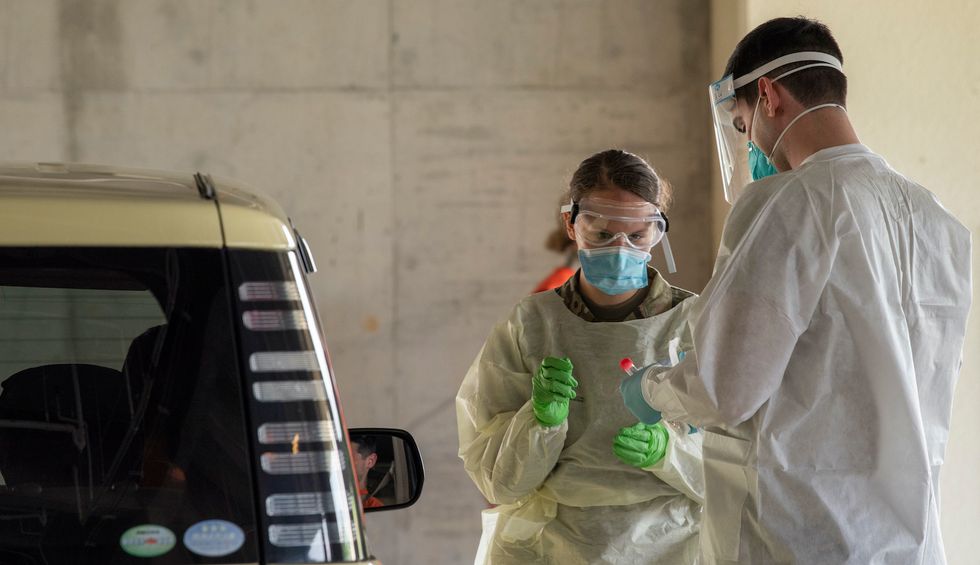‘Comprehensive’ study by French doctors and scientists does ‘not support’ the use of hydroxychloroquine to treat coronavirus: report

Airmen from the 18th Medical Group conduct COVID-19 testing at Kadena Air Base, Japan, March 20. Under the most current guidance from the Centers for Disease Control, the 18 MDG has increased its testing for the disease. Those who are tested become Persons Under Investigation (PUI), are contacted by Public Health, placed into isolation and instructed on how to avoid spread of their illness to family members in the home. Public Health interviews the PUI and develops a list of “close contacts” who are then called and given instructions to quarantine for 14 days. A close contact is someone who lived with or cared for a PUI, had direct physical contact with a PUI, or shared eating utensils or had prolonged close conversation with a PUI. On average, lab results take 2-5 days to return. If results are negative, isolated and quarantined individuals will be notified and released. If results come back positive, quarantine for the close contact will continue for 14 days and isolation for the PUI will continue until the PUI is medically cleared. Someone who has had contact with someone deemed a close contact does not need to be placed in quarantine but should continue to practice social distancing. (U.S. Air Force photo by Airman 1st Class Mandy Foster)
April 15, 2020 | 01:22PM ETNews & Politics
